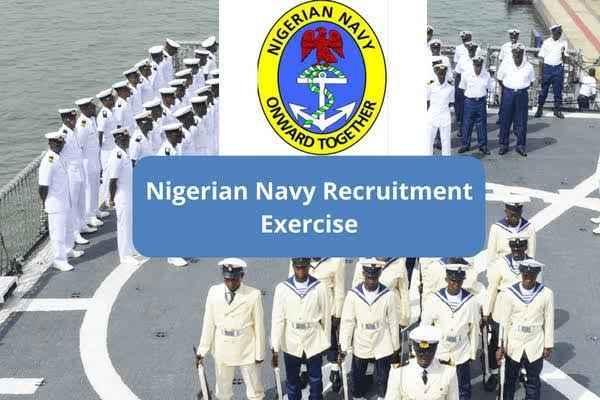Complete List Of Security Agencies In Nigeria: Duties And Responsibilities

Nigeria is one of the most populous and diverse nations in Africa, making security a critical concern for the government. To ensure the protection of lives, property, and national interests, Nigeria has established various security agencies. Each agency has specific duties and responsibilities, contributing to the overall safety and stability of the nation. This blog post provides a comprehensive list of security agencies in Nigeria, detailing their roles and the functions they perform.
1. Nigeria Police Force (NPF)
The Nigeria Police Force (NPF) is the largest security agency in Nigeria, responsible for maintaining law and order, preventing crime, and protecting citizens. The NPF is spread across the country, with state and divisional offices. Its primary duties include investigating criminal cases, enforcing laws, patrolling communities, and providing internal security. The police also engage in traffic control, riot control, and protection of public property.
2. Nigerian Armed Forces (NAF)
The Nigerian Armed Forces consists of the Nigerian Army, Nigerian Navy, and Nigerian Air Force. The Armed Forces are responsible for defending Nigeria against external threats, maintaining the country’s territorial integrity, and providing support during emergencies.
-
Nigerian Army: Tasked with defending the country’s land borders and participating in peacekeeping missions, the Army also handles internal security challenges such as insurgencies and armed conflicts.
-
Nigerian Navy: Responsible for protecting Nigeria’s territorial waters, the Navy also secures the nation’s maritime interests and combats illegal activities such as smuggling and piracy.
-
Nigerian Air Force: The Air Force is tasked with defending Nigeria’s airspace and providing air support for military operations on land and at sea.
3. Department of State Services (DSS)
The Department of State Services (DSS) is Nigeria’s primary domestic intelligence agency. Its responsibilities include gathering intelligence, preventing espionage, and countering terrorism. The DSS also monitors potential threats to national security, including political, economic, and social activities that could destabilize the country. Additionally, the DSS provides protection to top government officials, including the President, Vice President, and visiting foreign dignitaries.
4. Nigerian Security and Civil Defence Corps (NSCDC)
The Nigerian Security and Civil Defence Corps (NSCDC) is a paramilitary organization tasked with protecting critical national infrastructure, such as oil pipelines, power installations, and government facilities. The NSCDC also plays a significant role in disaster management, assisting in times of emergencies and maintaining order during crises. They collaborate with other security agencies to protect citizens and ensure internal security.
5. Nigeria Immigration Service (NIS)
The Nigeria Immigration Service (NIS) is responsible for managing Nigeria’s borders and regulating the entry and exit of people. Their duties include issuing passports and visas, monitoring immigration activities, and ensuring national security by preventing illegal migration. They also enforce laws concerning citizenship and residency status.
6. Nigeria Customs Service (NCS)
The Nigeria Customs Service (NCS) is tasked with managing and collecting customs duties and taxes on goods imported and exported into the country. They prevent smuggling, enforce trade regulations, and protect the country’s economic interests by monitoring goods entering and leaving Nigeria’s borders.
7. Economic and Financial Crimes Commission (EFCC)
The Economic and Financial Crimes Commission (EFCC) is Nigeria’s foremost agency tasked with fighting economic and financial crimes, such as corruption, money laundering, and fraud. The EFCC investigates and prosecutes individuals and organizations involved in illicit financial activities and ensures that offenders face justice. Their activities help protect the country’s economy and strengthen good governance.
8. National Drug Law Enforcement Agency (NDLEA)
The National Drug Law Enforcement Agency (NDLEA) is responsible for combating drug trafficking and abuse within Nigeria. The agency works to prevent the importation, exportation, and sale of illegal drugs. The NDLEA also conducts campaigns to educate the public on the dangers of drug abuse and provides rehabilitation services for drug addicts.
9. Federal Road Safety Corps (FRSC)
The Federal Road Safety Corps (FRSC) ensures road safety and enforces traffic regulations across Nigeria’s highways. Their duties include regulating traffic, educating the public on road safety, conducting vehicle inspections, and providing assistance during accidents. The FRSC also ensures that drivers are properly licensed and vehicles meet roadworthiness standards.
10. National Intelligence Agency (NIA)
The National Intelligence Agency (NIA) is responsible for gathering foreign intelligence and ensuring Nigeria’s security from external threats. The agency works closely with other international intelligence agencies to prevent espionage and protect Nigeria’s diplomatic interests abroad. The NIA also handles security issues related to foreign policies and international relations.
11. Nigerian Correctional Service (NCoS)
The Nigerian Correctional Service (NCoS), formerly known as the Nigerian Prisons Service, is responsible for the custody and rehabilitation of prisoners. Their duties include the safe confinement of offenders, promoting the reformation of inmates, and preparing prisoners for reintegration into society. They ensure that correctional facilities are well-managed and secure, preventing jailbreaks and prisoner unrest.
12. National Agency for the Prohibition of Trafficking in Persons (NAPTIP)
The National Agency for the Prohibition of Trafficking in Persons (NAPTIP) is tasked with combating human trafficking and other forms of exploitation, such as forced labor and child labor. NAPTIP works to rescue victims, prosecute traffickers, and provide rehabilitation services to survivors of human trafficking.
Conclusion
Nigeria’s security landscape is diverse, with multiple agencies working together to ensure the safety of citizens and the protection of national interests. From border security to combating crime and ensuring road safety, these agencies perform essential duties that contribute to Nigeria’s stability. Each agency plays a crucial role, and their collaboration ensures that Nigeria remains secure and well-protected from both internal and external threats.







